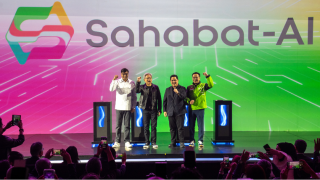The trial of blockchain for wholesale settlements carried out by Colt and PCCW Global is just the beginning.
Carriers could use blockchain for a whole new range of services – even to start a currency that companies in the wholesale industry could use to pay for the services they buy from one another, says Carl Grivner, who’s been CEO of Colt for two years.
Sceptical? “Fifteen years ago people were talking about the cloud just as people are talking about blockchain today,” he says. “But, now, people are starting to study blockchain and its impact.”
As we announced last week, Colt and PCCW Global have started trials to see how blockchain can speed up time for inter-carrier settlements and make them more reliable. The proofs of concept they have carried out so far indicate that blockchain can cut inter-carrier settlement times from hours to minutes.
It’s early stages, says Grivner. “The settlement test with PCCW Global is a baby step.” What will follow? He already has a list of possibilities. “The most exciting of them is cyber security.”
The whole blockchain project has emerged from the Global Leaders’ Forum (GLF), created by the top industry executives who a decade ago approached Capacity Media to start International Telecoms Week (ITW).
The GLF meets several times a year at major events in the industry. “We came up with the idea at Capacity Europe at the end of October 2017,” says Grivner. From there to a working proof of concept took just four months, he notes.
The third partner in the project is a Singapore-registered blockchain start-up, Clear, whose CEO, Gal Hochberg, had already worked with Marc Halbfinger, CEO of PCCW Global, the international arm of Hong Kong’s HKT.
Halbfinger chairs the GLF, which aims to foster an environment within the industry that focuses on ubiquity, collaboration and interoperability between providers. This proof of concept was centred on these themes by attempting to understand how a technology such as blockchain can benefit the sector as a whole.
“I applaud Marc for his lead on this,” says Grivner.
Blockchain is, simply, a distributed ledger – duplicated many, many times for security, and the members of the GLF have been discussing its potential for some time before that meeting at Capacity Europe.
Its power for the wholesale carrier industry is that for decades the process of reconciling records and settling debts has been laborious. Blockchain technology, it now seems clear, can make inter-carrier settlements more efficient, reliable and scalable.
“This is something that normally takes months,” says Grivner. “It’s not just the reconciliation of records but also the reconciliation of discrepancies.”
The blockchain trial by Colt and PCCW Global shows that it’s possible to reduce inter-carrier settlement times to minutes using blockchain technology. It’s not just more accurate but “it means better cashflow”, says Grivner.
Already he and Halbfinger – along with the rest of the GLF – are looking for ways to move beyond the first proof of concept, which involved voice minutes, largely because that was a well understood service provided by most carriers.
“Maybe a cryptocurrency,” he muses. “It could be used by telecoms carriers and maybe even by customers. Marc and a few others have talked about the creation of a cryptocurrency.”
Blockchain is best known, so far, as the engine behind Bitcoin, the cryptocurrency whose fluctuations in price have led to comparisons with Amsterdam’s tulip bubble of the 1630s. But whatever people say about the viability of Bitcoin and other cryptocurrencies, some are starting to realise that Blockchain could have important business applications – and telecoms is just one of the possible uses.
Not just bill settlement and security uses, and not just the idea of a cryptocurrency. “There are a lot more examples,” says Grivner. “The idea is to enrol more applications in the blockchain – not just settlement.”
What’s the next step? “Let’s enlist others industry-wide to look at some of the other applications, such as security.” Because blockchain is a distributed ledger, it’s almost impossible for one individual or company to create fake entries.
“Blockchain has raised the cybersecurity bar,” he adds. “It could be used for email, billing and other applications.” The mobile industry should find applications in roaming, he notes. “Ultimately I’d like to see the technology in our customers’ hands.”
Other articles in this series






